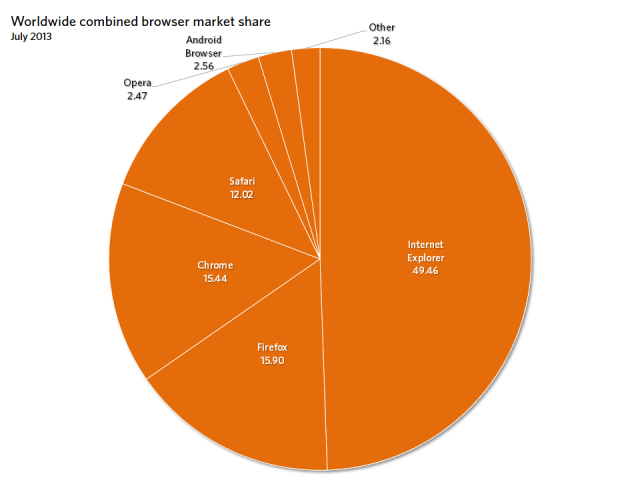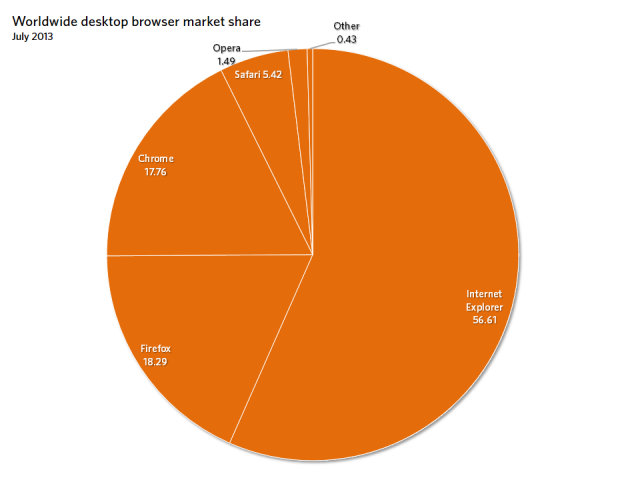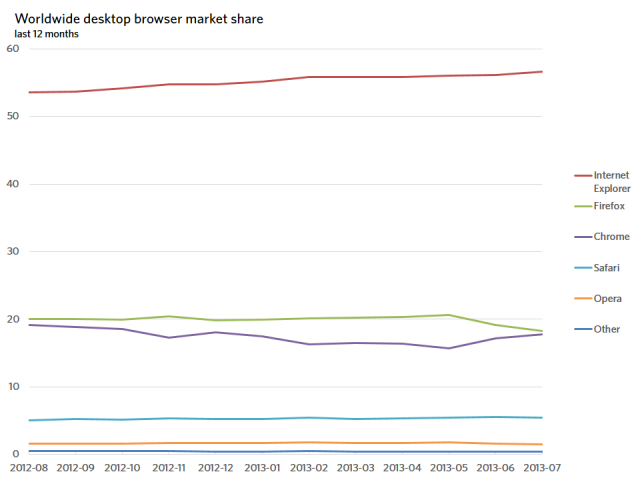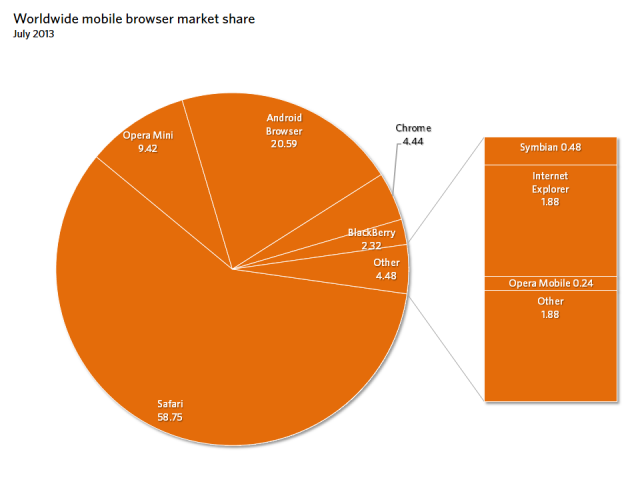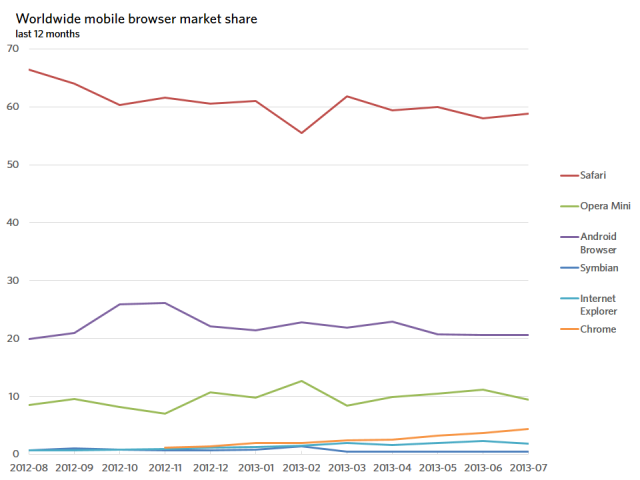Sunday, August 25, 2013
Spotted: Best Practices on the Move: Building Web Apps for Mobile Devices
Tuesday, August 20, 2013
Find: Almost half of US internet users over 65 use social networks, but only 5 percent use Twitter

One of Pew's last studies may have found that teens were seeking refuge from "drama" on Twitter, but the social network still has a lot of catching up to do. In its latest poll, Pew asked around 1,900 American internet users whether they used social networks and, in a separate question, Twitter. While 72 percent said they did the former, only 18 percent reported using Twitter. Even so, that's a steady rise from 2010, when only 8 percent of internet users were on the platform. Social networks in general have grown as well: we've come a long way from the 8 percent using them in 2005, and 67 percent were on at least one network in late 2012, though the survey doesn't record how frequently they sign on.
In some cases, the conventional...
Sunday, August 18, 2013
Find: How easy is it to hack JavaScript in a browser?

This Q&A is part of a weekly series of posts highlighting common questions encountered by technophiles and answered by users at Stack Exchange, a free, community-powered network of 100+ Q&A sites.
Jesus Rodriguez asks:
My question has to do with JavaScript security.
Wednesday, August 14, 2013
Find: NSA “touches” more of Internet than Google
---

In a memo issued last Friday, the National Security Agency (NSA) provided details of its ongoing network surveillance operations intended to assuage concerns about its scope, content, and oversight. As Ars' Cyrus Farivar reported, the NSA tried to set the context of its activities with a Carl Sagan-like metaphor:
According to figures published by a major tech provider, the Internet carries 1,826 Petabytes of information per day. In its foreign intelligence mission, NSA touches about 1.6 percent of that. However, of the 1.6 percent of the data, only 0.025 percent is actually selected for review. The net effect is that NSA analysts look at 0.00004 percent of the world's traffic in conducting their mission—that's less than one part in a million. Put another way, if a standard basketball court represented the global communications environment, NSA's total collection would be represented by an area smaller than a dime on that basketball court.
The numbers are no real surprise—we've already discussed how the laws of physics would make it impossible for the NSA to capture everything, or even a significant portion of everything, that passes over the Internet. But they're also misleading. In the world of deep packet inspection, verbs like "touch," "select," "collect," and "look at" don't begin to adequately describe what is going on or what information is extracted from traffic in the process. Considering all that's within what flows across the Internet, 1.6 percent could hold a significant portion of the metadata describing person-to-person communications.
How much is 1.6 percent?
The dime on the basketball court, as the NSA describes it, is still 29.21 petabytes of data a day. That means the NSA is "touching" more data than Google processes every day (a mere 20 petabytes).
Find: That .gov outage this morning? Blame an error in domain name security
This morning, citizens trying to reach US government websites got a bit of a surprise—the entirety of the .gov top level domain appeared to be offline. The reason: a hiccup in the Domain Name Service Security Extension (DNSSEC) information being distributed by .gov's registry.
According to a source at the General Services Administration, which operates the .gov registry, the registry team discovered that the DNSSEC information being distributed by its root domain name server had somehow become corrupted. The corruption affected the root domain's digital signature, making it appear not to be the authoritative server for the government's Internet names. As DNS data aged and expired, government sites disappeared from the Internet's directory and became unreachable by their host names (though the servers remained up).
The team reset the DNS server to correct the error. By around 10:20am Eastern Time today, government sites magically reappeared on the Internet. Resolution of the sites within the government's own networks was never interrupted.
Friday, August 2, 2013
Find: Windows 8 passes Vista at last, as IE10 growth slows
Windows 8 has finally overtaken Windows Vista to become the third most widely used operating system in a month that saw Internet Explorer 10's rapid growth slow down, and the gap between Firefox and Chrome close sharply.
Firefox was down 0.86 points to 18.29 percent, with Chrome up 0.59 points at 17.76 percent, bringing the two browsers within spitting distance of each other. Internet Explorer gained too, up 0.46 points to 56.61 percent. The prospect of Chrome overtaking Firefox to take the number two spot is once again with us. The two browsers last looked as though they would trade positions a year ago, before Chrome lost ground and Firefox reasserted its dominance.
Safari and Android browsers maintain their dominant positions. The Chrome browser on Android is continuing to show strong growth, picking up 0.69 points last month. Internet Explorer, however, suffered significant losses, dropping 0.49 points and wiping out the gains made in May and June.
